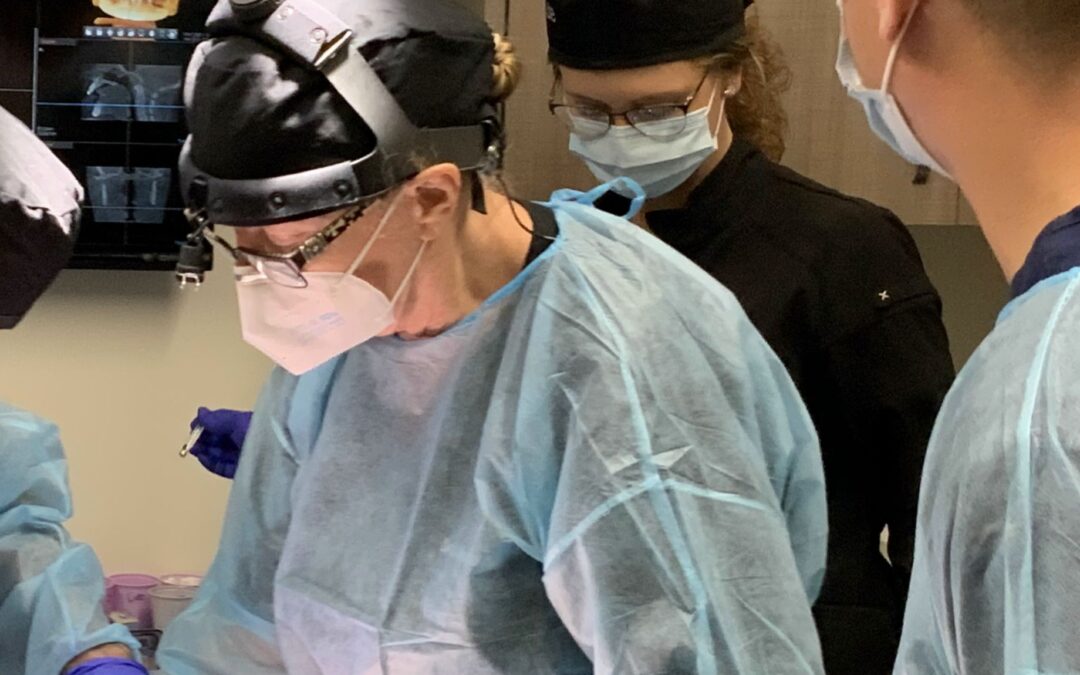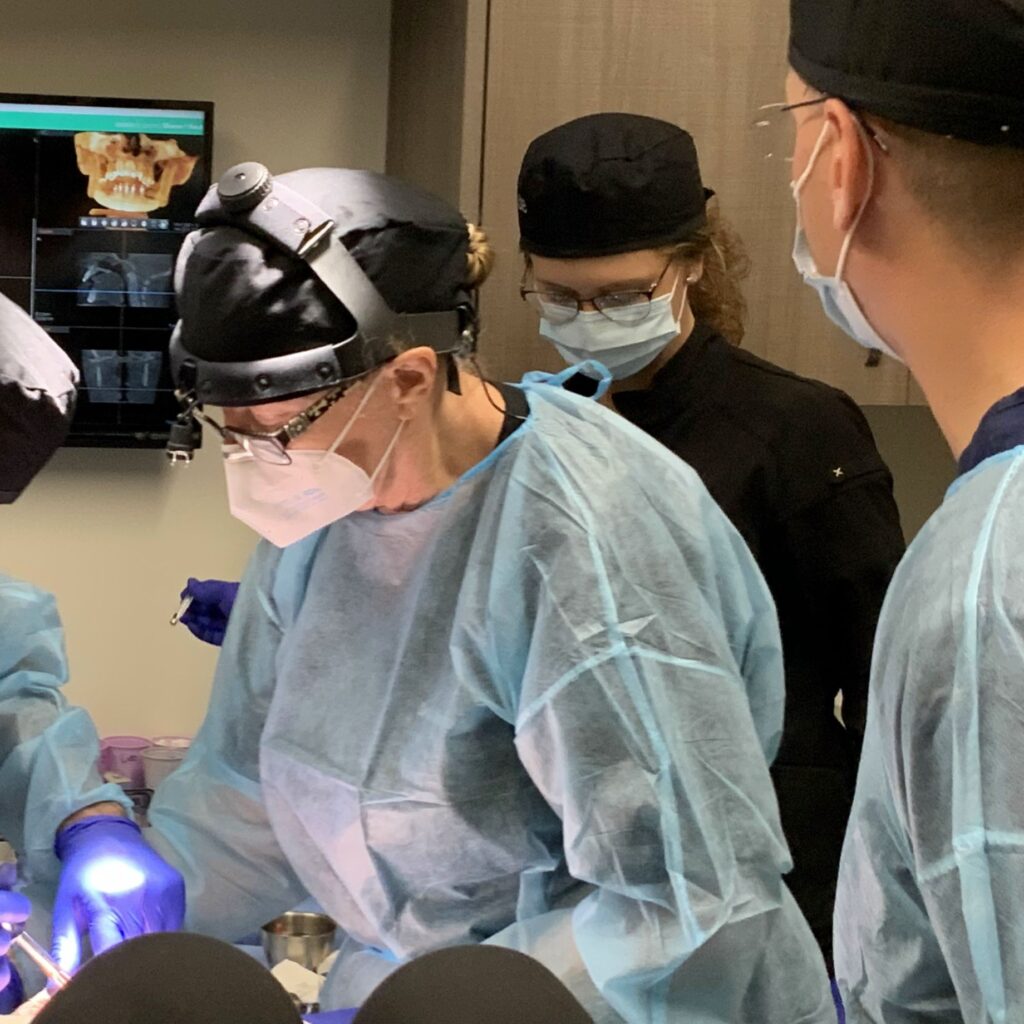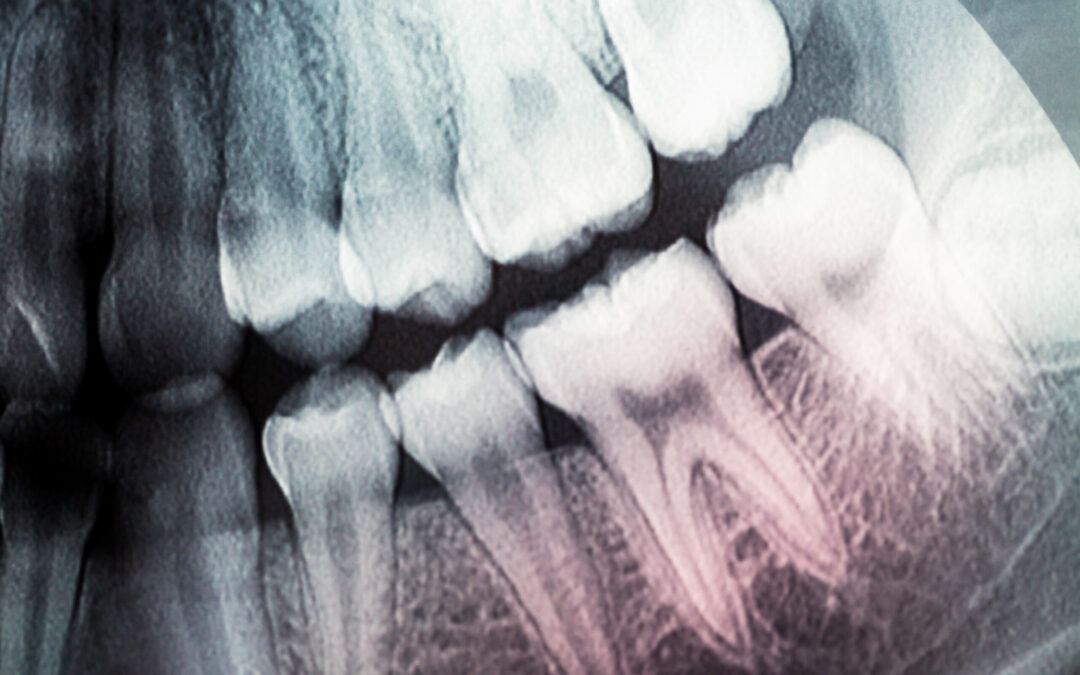
by Dr. Jacqueline S. Allen | Jan 21, 2021 | Blog, Dental Implants, Phoenix Endodontic Group
When a natural tooth cannot be saved, one effective option is to have it replaced with a dental implant. Whether installed as an individual implant, though, or as part of an entire arch of replacement teeth, implants have a significant cost associated with them. Many dental insurance plans do not cover implant costs, although many dentists have financing options available. It’s important to weigh the benefits dental implants offer, to assess whether they are the right investment for you.

Reasons Dental Implants Are Worth It
- Dental implants have high success and satisfaction rates. Studies have found the success rate for dental implants ranges anywhere from 95 percent to 99 percent and that more than 90 percent of patients are happy with the procedure.
- Dental implants allow you to speak and eat normally. If you have lost most or all of your upper or lower arch of teeth, dental implants provide an alternative to dentures. You may feel more comfortable speaking and have an easier time chewing your food because the implants stay fixed in place, like your natural teeth.
- Dental implants can prevent bone loss in your jaw. One of the impacts of losing multiple natural teeth is that your jaw can lose bone density, resulting in “facial sag” in the lower third of the face and causing additional oral health challenges. Some clients need a bone graft to ensure their jaw is strong enough to accept the implant. The implant process requires that the implant integrate into the jawbone, providing needed stimulation and halting the process of bone density loss in many cases.
- Dental implants do not require extra care to maintain. Implants are designed to be durable and last a lifetime. You care for them the same way you care for your natural teeth – by brushing twice a day, flossing daily, and seeing your dentist on a regular basis.
“Dental implants are a cost-effective solution for patients in a number of tooth-loss situations, and it is almost always a permanent solution,” says Dr. Jacqueline S. Allen, a practitioner at the Phoenix Endodontic Group. “Our practice performs a thorough pre-procedure examination and we are happy to discuss the specific benefits you may expect from choosing an implant.”
by Dr. Jacqueline S. Allen | Dec 21, 2020 | Blog, Endodontics, Endodontist, Root Canal
It’s crucial to have accurate information when considering a root canal. A qualified general dentist or endodontist can offer up-to-date knowledge about how root canals work and why you might need one.
Here are five common root canal questions received at the Phoenix Endodontic Group.
5 Top Root Canal Questions – Answered.
- What symptoms indicate a root canal may be needed? Natural teeth that are candidates for root canals have typically been damaged by decay or infection, or suffered structural damage to the tooth. Symptoms that may call for a root canal include: a severe toothache when you chew or apply pressure to the affected tooth; prolonged sensitivity to hot or cold; a recurring pimple on the gums near the tooth; discoloration of the tooth; swelling or tenderness in adjacent gum tissue.
- Will a root canal hurt? Today’s root canal procedures typically relieve pain created by infection or damage to the nerves inside the tooth pulp, rather than causing pain. Additionally, endodontists receive special training in pain management, so even post-operative discomfort is typically minimal.
- Is a root canal a better option than having my tooth pulled? The answer to this question depends on the overall health of your tooth, the gums surrounding it, and whether other natural teeth are suffering advanced decay or infection. One noteworthy advantage to retaining your natural teeth is a reduced chance of bone loss in your jaw. Such loss can lead to a host of negative consequences.
- What happens during a root canal? Here is a brief overview of how a root canal is performed: First, your endodontist will take X-rays. Then, they will numb the area with a local anesthetic and place a dental dam over the tooth to protect it from bacteria. Next, the practitioner will drill an access hole in the crown of the tooth. The pulp chamber and roots of the tooth will be thoroughly cleaned, shaped with special tools, then filled with a biocompatible material. Once complete, the endodontist covers the opening with a temporary filling. Weeks later, the final step in the procedure takes place: placing a crown, permanently sealing the access hole.
- Does it take a long time to recover after a root canal? Most patients experience some mild tenderness in the area of the root canal for a few days. This is usually managed with over-the-counter or prescription pain relievers. This discomfort should disappear within a week. If you experience severe pain, significant swelling, or if your temporary filling falls out, contact your endodontist as soon as possible so they can examine the tooth.
“It’s normal to be apprehensive if you have never had a root canal before,” says Dr. Allen, who practices with the Phoenix Endodontic Group. “Our office is always happy to answer your questions about root canals and provide you with a more comprehensive view of the procedure.”

by Dr. Jacqueline S. Allen | Nov 23, 2020 | Blog, Dental Implants, Phoenix Endodontic Group
Dental patients have a number of choices when one or more natural teeth cannot be saved, but not all choices are created equal. More and more, adults are choosing dental implants because implants offer advantages not found with other options. Dental implants are one of the most permanent and durable solutions to tooth loss, if the process begins with careful analysis and preparation by your dental team to ensure success.
Let’s take a look at why dental patients are increasingly choosing implants as their restoration of choice.
 Top Reasons Patients Choose Dental Implants
Top Reasons Patients Choose Dental Implants
Dental implants have a very high success rate. A study of the effectiveness of dental implants found that over the course of many years, implants maintain a success rate of between 95 and 99 percent.
Implants can replace a single tooth, several teeth, or an entire arch of teeth. Dental implants are flexible in terms of how many teeth they replace. Given the negative health consequences to losing ANY teeth, the ability to replace them is important.
Dental implants do not require the alteration of healthy natural teeth. Dental bridges are often considered as an option for a person who has lost several teeth. However, a major downside is the necessity of grinding down part of the natural tooth on each side of the bridge. This can weaken tooth structure and lead to decay or additional tooth loss. Dental implants require no such destructive alteration.
Dental implants stop bone loss in the jaw and preserve natural facial contours. Implants are the only tooth replacement option that can stop the bone loss accompanying loss of multiple teeth. Consequently, they also help prevent the “facial sag” that is a long-term consequence of tooth loss.
Dental implants can be more comfortable than other options. Implants use biocompatible titanium fused into your jaw to provide a stable platform for a crown that takes the place of the natural tooth. Implants then function like natural teeth. Dentures, even well-made sets, can come with irritation, soreness, and other challenges.
“Dental implants can be a life-altering option when dealing with tooth loss,” says Dr. Jaqueline S. Allen, who practices at the Phoenix Endodontic Group. “Our practice is skilled and experienced at determining whether you are a good candidate for this type of restoration.”

by Dr. Jacqueline S. Allen | Oct 12, 2020 | Blog, Endodontics, Phoenix Endodontic Group, Root Canal
Many dental patients know that root canals can save natural teeth but may wonder what actually happens inside the tooth with the procedure. Of course, there are many benefits to retaining your natural teeth whenever possible. The root canal treatment procedure replaces the living nerve pulp of your tooth with an inert biocompatible material, usually gutta-percha. Here’s a quick look at how root canals impact your natural tooth and allow them to remain a part of your smile.

How A Root Canal Affects Your Tooth
- The root or nerve pulp. This is the part of a tooth’s anatomy most impacted by a root canal. Typically, a root canal is called for if the tooth nerve has died or if the pulp is badly infected. During a root canal, the nerve pulp is removed with special tools and the canals themselves are flushed with material to treat the infection, so it does not return.
- The dentin. This layer of calcified tissue supports the top layer of enamel in a natural tooth. Dentin is produced by nerve pulp, so once the pulp is replaced with gutta-percha, dentin will no longer be produced in that tooth, which may make your teeth more brittle.
- The enamel. This hard outer layer of your natural tooth protects the internal parts of your tooth. It can be compromised by tooth decay or dental injuries (cracked or broken teeth), allowing bacteria to invade your nerve pulp chamber. A root canal stops this process, because not only does it remove the infected nerve pulp, the finishing restoration – a crown – fits like a “cap” over the tooth enamel, protecting it from additional damage or bacterial intrusion.
- The periodontal ligament. Sometimes a tooth is damaged because it is pushed out of position, threatening the periodontal ligament, which attaches our natural tooth to the jaw. In this case, a root canal can prevent further damage to the tooth, allowing it to be splinted in place to encourage the periodontal ligament to reattach and preventing infection issues inside the tooth.
While root canals do not “kill” natural teeth, removing and replacing the nerve pulp makes the tooth more brittle. Your endodontist will determine if you need additional restorations beyond a crown to ensure your tooth has sufficient support to function normally.
“Root canals do change how your natural teeth function, but they allow the other structures that are part of your teeth and gums to return to health, supporting your overall oral wellbeing,” says Dr. Allen, who practices with the Phoenix Endodontic Group. “Our practice is always happy to explain precisely how endodontic treatment can help preserve your natural teeth.”

by Dr. Jacqueline S. Allen | Sep 21, 2020 | Blog, Dental Implants, Phoenix Endodontic Group
Replacing a tooth – or all of them, if necessary – with a dental implant is a major health decision. It is important to understand what a dental implant can do for you, how the procedure will work, and postoperative care. Here are five questions you will find helpful to know the answers to before beginning your dental implant procedure.
 5 Questions To Ask Before Choosing A Dental Implant
5 Questions To Ask Before Choosing A Dental Implant
-
Why does it matter if I replace a failing/missing tooth? Although a tooth extraction may seem less expensive, there are a host of oral health issues that can be prevented by getting an implant. Dental implants can prevent shifting of your remaining natural teeth, make it less likely you’ll suffer gum disease or tooth decay, and can prevent the “facial collapse” that often happens with the loss of one or both arches of your teeth.
-
Why is an implant favored over a root canal? It’s good to know why your dentist does not recommend trying to save your natural tooth. Perhaps the structure of your tooth has deteriorated to the point it simply won’t support a root canal and a crown. Or perhaps there is a crack, especially one extending down below the gumline, that would make a root canal impossible. Your dentist should be able to explain why they are recommending a dental implant over a root canal and what clinical conditions make you a better candidate for the implant.
-
How long will the entire implant process take? The answer to this question will be highly individualized, depending on how many natural teeth will be replaced, if you have bone density challenges in your jaw that need to be addressed, if your dentist recommends using All-On-4 overdentures for a full arch of dental implants, and other factors. Your dentist should be able to provide a clear, easy-to-understand treatment timeline for you.
-
Will my implant be successful over the long term? Overall, dental implants have a high success rate – usually about 95 percent. They are designed to last a lifetime. What you really want to find out from your dentist by asking this question is how likely it is that a dental implant will be a permanent solution to your oral health challenges.
-
What do I need to know about managing pain after the dental implant? Your dentist should provide you a complete postoperative pain guide, that will cover how to manage discomfort (which is normal during the first few days after the procedure) and what types of pain you should call your dentist about. In general, nearly all swelling, tenderness or discomfort should be gone within seven to 10 days of your procedure.
“At Phoenix Endodontic Group, we want to ensure our patients understand why we recommend a dental implant over another procedure,” says Dr. Jaqueline S. Allen. “Answering patient questions is part of how we partner together to ensure the experience is comfortable and successful.”







